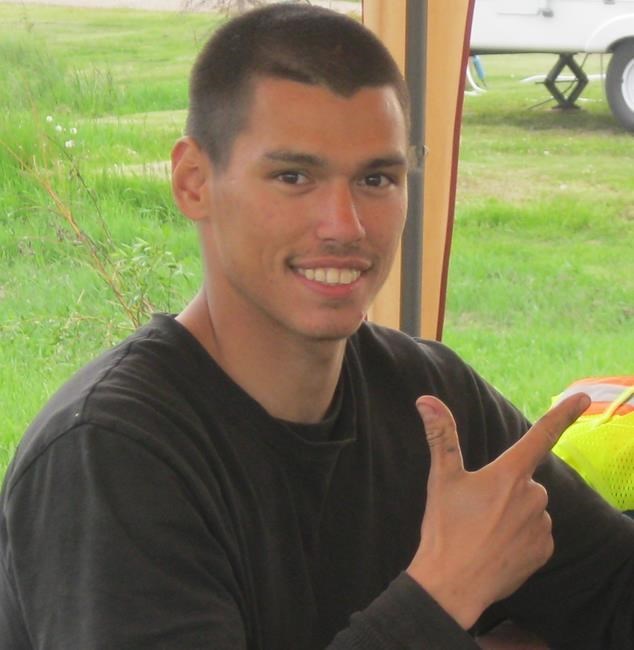VICTORIA — The British Columbia government says it has implemented all seven recommendations made by a coroner's jury at the inquest into the killing of a man by police in Port Hardy five years ago.
While the purpose of a coroner's inquest is to identify systemic gaps to prevent similar deaths in the future, the province also says many of the recommended actions were already in place.
James Butters, also known as James Hayward, was fatally shot by police that responded to reports of a man making threats in July 2015.
The Independent Investigations Office of B.C. cleared the RCMP officers involved of wrongdoing, finding in 2017 that Butters advanced toward them with a knife after the officers told him to drop it.
A coroner's inquest in August 2019 heard that in the weeks before and months after his release from prison, Butters had asked to see a doctor, wanting psychiatric help that he never received.
A member of Butters' family said they were hoping police and the government could learn lessons from the death but worry policies will continue to be ignored or breached.
The inquest heard the officer who shot Butters had not completed all of his mandatory de-escalation training either at the time of the shooting or by the time of the inquest four years later, although he remained on duty.
The jury made seven recommendations, including ensuring that anyone released from correctional facilities is provided with the medication they need and that the province enforce the required de-escalation training for police officers.
The presiding coroner is expected to release her comments on the recommendations imminently. They will then officially be forwarded to the Public Safety Ministry. However, the ministry said the recommended changes are already in place.
"The province has implemented all of the recommendations," the ministry said in an email reply.
Several of the recommendations are part of existing policy, the government said. They include the provision of forensic psychiatric assessments, communication between parole officers when a client transfers between jurisdictions and training to help parole officers recognize and respond to mental health symptoms.
The Provincial Health Services Authority took jurisdiction over correctional health services in 2017 and its policy ensures those with known release dates are provided with up to a 14-day supply of medications for continuity of therapy, the ministry says.
One action taken this year since the inquest is an evaluation by the ministry to assess police agency compliance with crisis intervention de-escalation training and other use-of-force training requirements, such as annual firearm certifications.
"Ministry staff have observed high rates of compliance with (crisis intervention de-escalation) and other training requirements at police agencies visited to date. The evaluation will be completed in fall 2020."
Butters' aunt Nora Hayward said she's happy to know the recommendations are in place. However, the entire process of trying to get justice for her nephew has been frustratingly slow and difficult to navigate, she said.
"We didn't even learn what had happened, because James couldn't tell us, until four years later," Hayward said.
The family only heard the names of the officers involved at the inquest, she said. They were shocked to learn the officer who shot him still hadn't completed all of his training.
The RCMP says his training is now up to date.
The family is concerned that the problems weren't a lack of policy, but that many policies weren't followed, Hayward said. But lodging complaints five years after the shooting is daunting, she said.
Butters had trouble accessing treatment for his mental health issues, Hayward said. Without the psychiatric assessment he requested, Butters didn't qualify for the cost of his medication to be covered.
While 14 days of medications would have helped, it wouldn't have saved her nephew, Hayward said.
"James suffered from mental health issues and he was trying to get better," she said.
Hayward said she hopes what happened to Butters won't happen to anyone else.
"I want his life to make a difference," she said.
Mark Miller, executive director of the John Howard Society of the Lower Mainland, couldn't speak to Butters' case directly but said there's always a need for more rigorous support for people with complex mental health needs.
"There have been some good strides made in that area, but it continues to be an area that requires more," he said.
Parole officers tend to be well trained in both mental health and addictions, Miller said, but it's always a good idea to offer more training as those needs can become more complex and evolve.
Miller also noted there may be good reasons to limit the distribution of medication to 14 days, as the risk of overdoses and other types of crises are magnified during the transition out of prison.
One of the biggest challenges facing people transitioning out of institutions can be identifying and accessing the services available to them, and the society tries to offer support, he said.
Services are often divvied up between multiple authorities under umbrellas like corrections, housing and health. Add to that the experience of a mental health crisis, and things that many of us take for granted like the ability to fill out an application form can be compromised, he said.
— By Amy Smart in Vancouver.
This report by The Canadian Press was first published Aug. 1, 2020.
The Canadian Press



